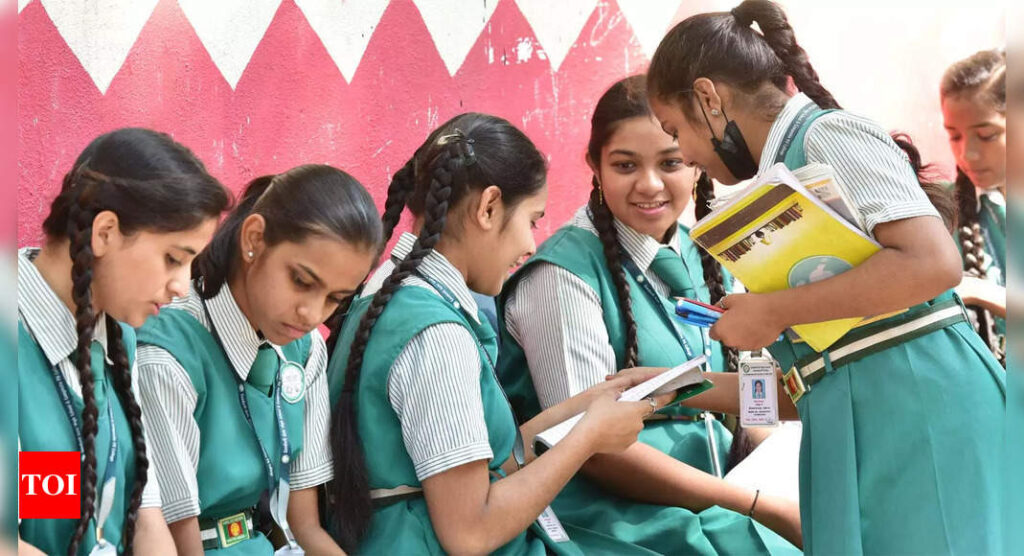As the month of September has started, schools across India are gearing up for a series of holidays that hold both cultural and educational significance. From paying tribute to educators to celebrating religious festivals, September brings a blend of festivities and observances that mark a break in the school calendar.
Let’s explore the significance of each of these holidays and why they are being declared as school holidays.
September 5: Teachers’ Day
Teachers’ Day, celebrated on September 5, is a day dedicated to honouring and appreciating educators for their invaluable contribution to society. This day commemorates the birthday of Dr. Sarvepalli Radhakrishnan, a renowned philosopher and India’s second President, who believed in the transformative power of education. On this day, students express their gratitude towards their teachers through various activities, presentations, and heartfelt messages.
September 6 or 7: Janmashtami (state specific)
Janmashtami, also known as Krishna Janmashtami, is a Hindu festival celebrating the birth of Lord Krishna, an incarnation of Lord Vishnu. The date varies depending on the lunar calendar and is celebrated with great enthusiasm across India. Schools in states where Janmashtami falls on September 6 or 7 observe a holiday to allow students and staff to participate in the festivities that include devotional songs, dance performances, and reenactments of Lord Krishna’s life.
September 8-10: G20 Summit Holidays (Delhi only)
The G20 Summit is a major international event where leaders from the world’s largest economies gather to discuss global economic issues. This year, the summit is hosted in Delhi, India. While the summit itself involves high-level discussions, schools in Delhi are likely to observe holidays on September 8-10 to facilitate the event and manage traffic congestion. This offers students an opportunity to witness the country’s engagement with global affairs.
September 19: Ganesh Chaturthi
Ganesh Chaturthi, also known as Vinayaka Chaturthi, is a vibrant Hindu festival that celebrates the birth of Lord Ganesha, the elephant-headed deity of wisdom and prosperity. Families and communities install Ganesha idols, offer prayers, and engage in processions before immersing the idols in water bodies. Schools observe a holiday on this day, allowing students to partake in these festivities and understand the cultural significance of the festival.
September 28: Milad un-Nabi/Id-e-Milad
Milad un-Nabi, also known as Id-e-Milad, commemorates the birthday of Prophet Muhammad, the founder of Islam. This day holds religious significance for the Muslim community and is observed with prayers, processions, and discussions about the life and teachings of the Prophet. Schools that have a diverse student body declare a holiday to respect and accommodate the religious observances of Muslim students and staff.
Let’s explore the significance of each of these holidays and why they are being declared as school holidays.
September 5: Teachers’ Day
Teachers’ Day, celebrated on September 5, is a day dedicated to honouring and appreciating educators for their invaluable contribution to society. This day commemorates the birthday of Dr. Sarvepalli Radhakrishnan, a renowned philosopher and India’s second President, who believed in the transformative power of education. On this day, students express their gratitude towards their teachers through various activities, presentations, and heartfelt messages.
September 6 or 7: Janmashtami (state specific)
Janmashtami, also known as Krishna Janmashtami, is a Hindu festival celebrating the birth of Lord Krishna, an incarnation of Lord Vishnu. The date varies depending on the lunar calendar and is celebrated with great enthusiasm across India. Schools in states where Janmashtami falls on September 6 or 7 observe a holiday to allow students and staff to participate in the festivities that include devotional songs, dance performances, and reenactments of Lord Krishna’s life.
September 8-10: G20 Summit Holidays (Delhi only)
The G20 Summit is a major international event where leaders from the world’s largest economies gather to discuss global economic issues. This year, the summit is hosted in Delhi, India. While the summit itself involves high-level discussions, schools in Delhi are likely to observe holidays on September 8-10 to facilitate the event and manage traffic congestion. This offers students an opportunity to witness the country’s engagement with global affairs.
September 19: Ganesh Chaturthi
Ganesh Chaturthi, also known as Vinayaka Chaturthi, is a vibrant Hindu festival that celebrates the birth of Lord Ganesha, the elephant-headed deity of wisdom and prosperity. Families and communities install Ganesha idols, offer prayers, and engage in processions before immersing the idols in water bodies. Schools observe a holiday on this day, allowing students to partake in these festivities and understand the cultural significance of the festival.
September 28: Milad un-Nabi/Id-e-Milad
Milad un-Nabi, also known as Id-e-Milad, commemorates the birthday of Prophet Muhammad, the founder of Islam. This day holds religious significance for the Muslim community and is observed with prayers, processions, and discussions about the life and teachings of the Prophet. Schools that have a diverse student body declare a holiday to respect and accommodate the religious observances of Muslim students and staff.

